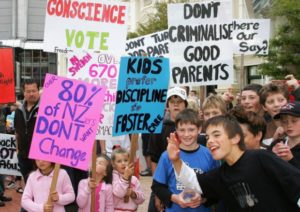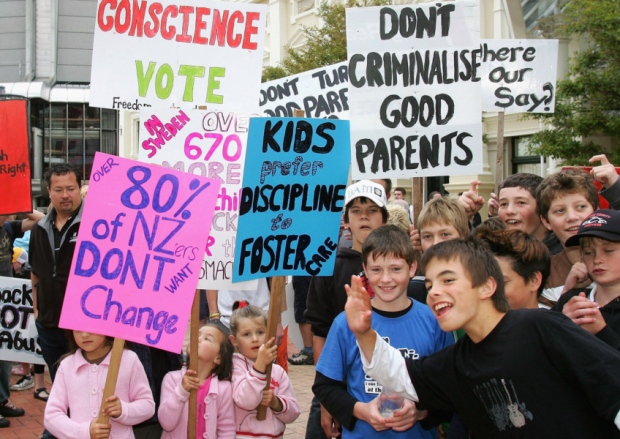NZ First Repeal Of Anti-Smacking Law Welcomed
 Media Release 26 March 2017
Media Release 26 March 2017
Family First NZ is welcoming NZ First’s pledge to repeal the anti-smacking law, and will be clarifying with the party as to whether it is a non-negotiable bottom line for any coalition agreement after the election.
In a speech on Friday in Northland, leader Winston Peters said; “We are going to repeal the anti-smacking law which doesn’t work and has in fact seen greater violence towards children.”
In 2014, NZ First said “NZ First policy is to repeal the anti-smacking law passed by the last parliament despite overwhelming public opposition. Accordingly, we will not enter any coalition or confidence and supply agreement with a party that wishes to ignore the public’s clearly stated view in a referendum on that issue.”
“Despite having almost 10 years to prove the doubters wrong, the smacking law has failed to convince anybody of its benefits or its effectiveness. In fact, the law has maintained its very high level of opposition, but most significantly, a high level of NZ’ers say they would flout the law despite the possible consequences. This proves the abject failure and rejection by ordinary NZ’ers of this highly controversial and flawed law. If it had any merit, it would have proved itself by now. Instead it has simply threatened and undermined good parents raising great kids,” says Bob McCoskrie, National Director of Family First NZ.
An analysis of the law in 2014 by Public Law Specialists Chen Palmer said that statements made by politicians and Nigel Latta to the effect that the new section 59 does not criminalise “good parents” for lightly smacking their children appear to be inconsistent with the legal effect of section 59 and the cases they analysed.
“A report at the beginning of last year analysing the 2007 anti-smacking law, “Defying Human Nature: An Analysis of New Zealand’s 2007 Anti-Smacking Law”, found that there was not a single social indicator relating to the abuse of children that had shown significant or sustained improvement since the passing of the law, and that the law has negatively impacted law-abiding parents,” says Mr McCoskrie.
Police statistics show there has been a 136% increase in physical abuse, 43% increase in sexual abuse, 45% increase in neglect or ill-treatment of children, and 71 child abuse deaths since the law was passed in 2007. CYF have had more than 1 million notifications of abuse and there has been a 42% increase in physical abuse found by CYF since 2007.
“New Zealanders predicted all of this before the law was passed, but their concerns were ignored. The politicians and anti-smacking lobby groups linked good parents who smacked their children with child abusers, a notion roundly rejected – and still rejected – by NZ’ers. The anti-smacking law assumes that previous generations disciplined their children in a manner that was so harmful that they should now be considered criminals,” says Mr McCoskrie.
A poll released in January found continued widespread rejection of the law and that two out of three NZ’ers would flout the law if they believed it reasonable to correct the behaviour of their child.
“It appears that NZ First are listening, and may be in a position to repeal this law after the election.”
ENDS






